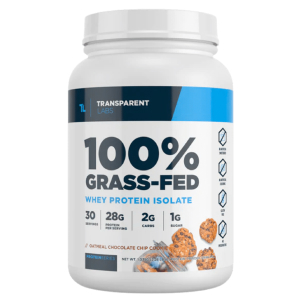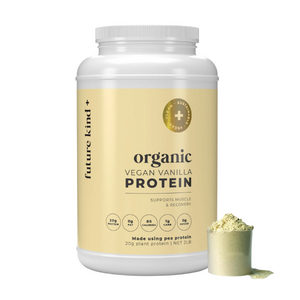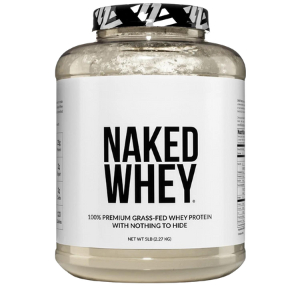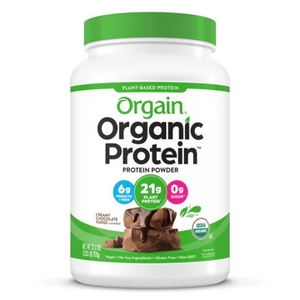 Expert's opinion
Expert's opinion
The article is a subjective view on this topic written by writers specializing in medical writing.
It may reflect on a personal journey surrounding struggles with an illness or medical condition, involve product comparisons, diet considerations, or other health-related opinions.
Although the view is entirely that of the writer, it is based on academic experiences and scientific research they have conducted; it is fact-checked by a team of degreed medical experts, and validated by sources attached to the article.
The numbers in parenthesis (1,2,3) will take you to clickable links to related scientific papers.
5 Best Protein Powders For Runners 2024 & When To Take Them
All articles are produced independently. When you click our links for purchasing products, we earn an affiliate commission. Learn more about how we earn revenue by reading our advertise disclaimer.

Transparent Labs Whey Protein Isolate Powder
- 28 grams of protein per serving
- Third-party tested
- Free of artificial sweeteners, dye, and preservatives

Future Kind Organic Vegan Protein Powder
- 20 grams of plant-based protein per serving
- High in iron
- Free of gluten, sugar, and artificial colors
10% Off Coupon: 10OFF

Naked Grass-Fed Whey Protein Powder
- Informed-Choice certified
- Free of unnecessary ingredients
- 25 grams of protein and 5.9 grams of BCAAs per serving
15% Off Coupon: HEALTHCANAL
We need protein[1] to build and repair tissues such as muscle, bones, and cartilage. Protein is also necessary to make enzymes and hormones and is involved in many other important bodily processes.
Protein powders are popular dietary supplements that can help individuals boost their daily protein intake with little effort. Bodybuilders have long hailed the benefits of drinking protein shakes after a heavy lift at the gym, but should you do the same after a long run?
In short, yes. This article discusses the best protein powders for runners. It also explores its benefits, side effects, and how to choose the best protein powder to fit your needs.
5 Best Protein Powders For Runners In (May. 2024)
- Transparent Labs Whey Protein Isolate Powder – Editor’s Choice
- Future Kind Organic Vegan Protein Powder – Best Vegan
- Naked Grass-Fed Whey Protein Powder – Best Quality
- Optimum Nutrition Gold Whey Protein Powder – Best Flavor
- Orgain Organic Plant-Based Protein Powder – Best Vegan Budget Pick
5 Best Protein Powders For Runners In 2024
Transparent Labs Whey Protein Isolate Powder
Transparent Lab Whey Protein is a high-quality supplement containing 28 grams of protein, just two grams of carbohydrates, and 120 calories per serving.
- Free of artificial sweeteners, colors, dyes, and preservatives
- Third-party tested
- 28 grams of protein per serving
- Stevia present
- The amount of arsenic present is close to the limit recommended by the United States Pharmacopeia
Transparent Labs Grass-Fed Whey Protein Isolate is sourced from hormone-free, naturally fed cows. It is a favorite among many health-conscious individuals because it is free of artificial sweeteners, colors, dyes, gluten, and preservatives.
Transparent Labs does use stevia to sweeten their protein powder. Studies[2] suggest stevia may alter the composition of gut bacteria. Further studies must be done to determine if this alteration is beneficial or harmful.
Transparent Labs Whey Protein Oatmeal Chocolate Chip Cookie flavor packs 28 grams of easily digestible protein per scoop.
Products sold by Transparent Labs are third-party tested and come with a Certificate of Analysis attesting to its laboratory analysis for molds, heavy metals, and microbial contaminants such as Salmonella and E.Coli.
Some Certificates of Analysis show arsenic (12.2 micrograms per serving), which is close to the maximum limit of 15 micrograms per day as proposed by the United States Pharmacopeia.
A 30-serving container costs $59.99, or about $2.00 per serving.
Future Kind Organic Vegan Protein Powder

10% Off Coupon: 10OFF
Future Kind Organic Vegan Protein Powder features plant-based, organic pea protein, which makes it a good option for vegan runners.
- Vegan
- Free of sugar, gluten, and artificial colors
- 20 grams of protein per scoop
- High in iron
- Sweetened using stevia
- Not a complete protein
Future Kind Organic Vegan Protein Powder is free of added sugar, gluten, artificial colors, and preservatives. However, it is sweetened using the controversial sweetener stevia.
Each scoop serving of this vegan protein powder provides 20 grams of organic pea protein to support muscle growth and recovery after runs.
Pea protein is high in muscle-building branched-chain amino acids, also known as BCAAs, and contains all essential amino acids. However, it does not meet the definition of a complete protein because it is low in methionine.[3]
Future Kind Organic Vegan Protein Powder provides 34% of the Daily Value of iron,[4] which is vital for endurance athletes because of its role in oxygen transport and energy production. The term Daily Value[5] refers to how much of a nutrient a person should consume each day based on a standard 2,000-calorie diet.
Future Kind states that a third party tests all products for purity and potency. Although lab test results are not publicly available online, they can be e-mailed to you.
One 34-serving container costs $59.99, which is around $1.76 per serving.
Naked Grass-Fed Whey Protein Powder
Naked Nutrition Grass Fed Unflavored Whey Protein Powder is a high-quality protein powder that mixes easily into your favorite food or beverage. It is made with one simple ingredient — whey protein concentrate.
- Informed-Choice certified
- The unflavored option contains one ingredient
- Contains 25 grams of protein and 5.9 grams of BCAAs per serving
- Only one size option offered
Naked Nutrition Grass Fed Whey Protein Powder comes from grass-fed cows raised on small dairy farms in California and Idaho.
Naked Nutrition Unflavored Grass Fed Whey Protein Powder contains only whey protein concentrate and is free of artificial flavors, sweeteners, and additives. Each two-scoop serving provides 120 calories, three grams of carbohydrates, 25 grams of protein, and 5.9 grams of branched-chain amino acids.
Clinical evidence[6] suggests supplementation with BCAAs may improve athletic performance and reduce muscle damage following endurance exercise.
If you prefer a flavored option, Naked Nutrition offers Chocolate, Strawberry, and Vanilla, which are flavored using natural flavors and organic coconut sugar. All flavors of Naked Nutrition’s whey protein powders bear the Informed-Choice logo. This means every batch is tested monthly for impurities and banned substances.
Naked Nutrition uses a third-party lab in the United States to test all products. However, lab reports are not publicly available at this time.
Each 76-serving container costs $94.99, or about $1.24 per serving.
Optimum Nutrition Gold Whey Protein Powder
With over 20 flavors, including naturally flavored options, and an affordable price point, Optimum Nutrition Gold Whey Protein Powder is a solid choice.
- Informed-Choice certified
- Ten flavor options
- Contains 24 grams of protein and 5.5 g of BCAAs per serving
- Contains artificial flavors
- Contains sucralose
Optimum Nutrition has been in business for over 30 years, helping athletes reach their health and fitness goals.
Optimum Nutrition’s Gold Whey Protein Powder is currently available in 10 delicious flavors, including Banana Cream, Coffee, Cookies & Cream, Rocky Road, and French Vanilla Cream.
While the exact nutritional content varies by flavor, Optimum’s French Vanilla Cream protein powder contains whey protein isolate as a primary ingredient combined with whey protein concentrate and hydrolysate.
Each scoop provides 120 calories, 24 grams of protein, and 4 grams of carbohydrates. Every serving also contains 5.5 grams of branched-chain amino acids.
Most flavor options are made with artificial flavors and sweeteners, including sucralose, which some animal studies suggest can alter gut microbiota composition and reduce the abundance of beneficial bacteria. It has also been shown to elevate blood sugars in some individuals.
All flavors of Optimum Nutrition Gold Whey Protein Powder are Informed-Choice certified. A container with 29 servings costs $44.99, equivalent to around $1.55 per serving.
Orgain Organic Plant-Based Protein Powder
Orgain Organic Plant-Based Protein Powder is a good option if you are looking for a plant-based protein powder that contains adequate amounts of all nine essential amino acids.
- 21 grams of complete, plant-based protein per serving
- Lactose-free
- Certified Organic by the United States Department of Agriculture
- Contains stevia
- Lacks third-party testing
Orgain is a popular supplement company created by a physician who believes in the power of good, clean nutrition. All supplements sold by Orgain are made with organic, real, high-quality ingredients.
Orgain’s Organic Plant-Based Protein Powder comprises a blend of organic pea protein, rice protein, and chia seed for a complete amino acid profile. It is also Certified Organic by the United States Department of Agriculture.
This product comes in ten flavors, including Creamy Chocolate Fudge, Vanilla Bean, Iced Coffee, Strawberries & Cream, and Peanut Butter. All flavored options are made with organic stevia and organic erythritol, a type of sugar alcohol. An unflavored option is also available that is free of stevia and erythritol.
Although some sugar alcohols tend to cause digestive issues, it appears that erythritol is less likely[7] to cause digestive changes compared to other types of sugar alcohols.
Each two-scoop serving of the Vanilla Bean flavor contains 15 grams of carbohydrates, 150 calories, and 21 grams of protein. It also includes 35% of the Daily Value of iron per serving.
While Orgain products are tested in-house for quality and arsenic, cadmium, mercury, and lead, they do not appear to be third-party tested. In-house heavy metal reports are not publicly available and are not considered as reliable as third-party testing.
One 20-serving canister costs $25.49, or about $1.27 per serving.
Should Runners Take Protein Powder?
While we typically see endurance runners filling their plates with rice and pasta before or after a run, adequate protein intake and timing of intake are just as crucial for runners.
Because our muscles are primarily made up of protein, including enough in your diet is essential for recovering from runs and building muscle to improve performance.
Benefits Of The Best Protein Powders For Runners
According to one recent study,[8] endurance athletes should consume around 1.2-2.0 grams of protein per kilogram of body weight daily to prevent muscle breakdown and stimulate muscle protein synthesis.
In particular, it is recommended to consume 0.3 grams of high-quality protein per kilogram of body weight (~20-40 grams) every three to five hours, spread throughout the day. This includes a dose immediately before or within two hours after exercise.
Athletes running marathons or performing high-intensity endurance exercises may also benefit from combining carbohydrates with 0.25 grams of protein per kilogram of body weight per hour during high-intensity exercise.
Because it can be challenging to meet these requirements with food alone, supplementing with protein powder — especially before or after exercise — can be a convenient way to kick-start your repair and recovery.
That said, protein powder is only meant to supplement your diet. Whole food protein sources, such as lean beef, poultry, fish, eggs, soy, and dairy products, are always your best bet.
Choosing The Best Protein Powders For Runners
When it comes to choosing the best protein powder, you’ll want to consider several factors, including
Types Of Protein Powder
Protein powders contain either vegan or animal-based protein sources. Vegan protein powders can be made from plant-based protein sources, including hemp, soy, rice, or pea protein. Animal protein powders often contain whey, casein, or collagen.
Whey protein is popular because it is a complete protein, containing digestive enzymes, and is quickly absorbed. Regarding vegan protein powders, consider choosing one that contains a blend of plant-based proteins with complementary amino acid profiles to make it a complete protein source. This means it will have all nine essential amino acids, and it is a better-quality protein your body can use more efficiently.
Third-Party Testing
Like all dietary supplements, the Food and Drug Administration does not regulate protein powder for safety or effectiveness. This makes third-party testing important to verify its purity and that its ingredients match what is on the label.
Lab testing also ensures the product is not contaminated with microbes, heavy metals, molds, and such. It’s best to purchase from a fully transparent supplier that publishes all third-party testing results online. Keep in mind, however, that third-party testers do not always test for all contaminants, so it is always a good idea to look over the lab report to see what was tested for.
According to a 2018 study, many of the best-selling protein powders contain heavy metals, such as lead, arsenic, and cadmium. Yet, a look at many of the lab reports available on the market shows only testing for microbial contamination and product contents.
As such, it’s best to always proceed with caution when buying protein powders and purchase a product from a reputable brand.
Ingredients
The ingredients in protein powders greatly vary. While some protein powders contain natural sweeteners, such as monk fruit, others contain artificial sweeteners, corn syrups, or table sugar. Even natural sweeteners such as stevia come with inherent risks.
We suggest avoiding or limiting protein powders with artificial sweeteners like sucralose, saccharin, aspartame, and others, which could upset the balance of beneficial bacteria in your gut, potentially affecting insulin response and aggravating blood sugar control in some individuals.
As previously mentioned, some evidence also suggests stevia may also alter the bacterial balance in your gut. However, we are still determining if it is beneficial for our health or not at this time, and more follow-up human studies are needed.
Selecting a product with a good amount of protein is also essential. A good rule of thumb is to look for a supplement with at least 20 grams of high-quality protein.
Potential Side Effects Of Protein Powder
Protein powder is considered to be safe for most healthy individuals. However, some people may experience digestive discomfort,[9] including foul-smelling gas, bloating, abdominal pain, and difficulty controlling bowel movements.
Additionally, if you are sensitive to lactose and consume a dairy-based protein powder, such as whey, you may experience digestive upset.
Furthermore, if you have irritable bowel syndrome[10] or are sensitive to fermentable oligo-, di-, and monosaccharides and polyols, also known as FODMAPS, you may experience abdominal cramping or bloat from consuming pea protein powder or sugar alcohols.
Lastly, if you have a history of chronic kidney disease[11] or have been instructed to limit your protein intake, discuss with your healthcare provider to determine if a protein supplement is appropriate for you.
When And How To Take Protein Powder?
You can take protein powder at any time of the day to boost your daily protein intake. While the exact time protein powder should be consumed remains controversial, studies[12] suggest that drinking a protein shake alongside a source of carbohydrates during or after a long run can enhance muscle recovery, soreness, and fatigue.
You can take protein powder by adding a scoop to water, milk, or your favorite beverage. Protein powders can also be added to smoothies, oatmeal, pancakes, casseroles, and other baked goods.
Final Thought
Protein powders are an easy, convenient way to boost your daily protein intake enough protein and maximize your recovery after long runs.
The best protein powders for runners will be a complete protein, containing all nine essential amino acids. It’s also important to choose a protein powder with as few additives, preservatives, and other unnatural ingredients as possible.
Always consult your healthcare provider before starting any dietary supplements, such as protein powder.
Frequently Asked Questions
Whey protein is one of the best types of protein for runners because it is easy to digest and contains all nine essential amino acids. However, plant-based protein powders that contain a variety of plant-based proteins with complementary amino acid profiles are also a great option.
A complete protein powder that contains all nine essential amino acids is the best for runners. Whey protein powder is a good option for those without dietary restrictions, while a pea and rice protein blend or pumpkin seed protein is best for individuals who follow a vegan diet or are sensitive to lactose.
Whey protein powder is a complete protein and absorbs fast to aid in quick muscle repair, which can be very beneficial for a runner’s recovery and training.
Many people prefer to drink a protein shake after a long run to help repair and rebuild muscles. However, clinical evidence suggests that drinking a protein shake can be beneficial immediately before or up to two hours after a workout.
Although there’s no need to drink a protein shake after each run if your protein intake is sufficient, runners can have a protein shake daily to help meet their daily protein needs.
+ 12 sources
Health Canal avoids using tertiary references. We have strict sourcing guidelines and rely on peer-reviewed studies, academic researches from medical associations and institutions. To ensure the accuracy of articles in Health Canal, you can read more about the editorial process here
- Myplate.gov. (2020). USDA MyPlate Protein Foods Group – One of the Five Food Groups. [online] Available at: https://www.myplate.gov/eat-healthy/protein-foods.
- Kasti, A.N., Nikolaki, M.D., Synodinou, K.D., Konstantinos Katsas, Konstantinos Petsis, Lambrinou, S., Ioannis Pyrousis and Konstantinos Triantafyllou (2022). The Effects of Stevia Consumption on Gut Bacteria: Friend or Foe? Microorganisms, [online] 10(4), pp.744–744. doi:https://doi.org/10.3390/microorganisms10040744.
- Stefan H.M. Gorissen, Julie, Senden, J.M., W. A. Huub Waterval, Joergen Bierau, Verdijk, L.B. and Loon, van (2018). Protein content and amino acid composition of commercially available plant-based protein isolates. Amino Acids, [online] 50(12), pp.1685–1695. doi:https://doi.org/10.1007/s00726-018-2640-5.
- Hinton, P.S. (2014). Iron and the endurance athlete. Applied Physiology, Nutrition, and Metabolism, [online] 39(9), pp.1012–1018. doi:https://doi.org/10.1139/apnm-2014-0147.
- Center (2023). How to Understand and Use the Nutrition Facts Label. [online] U.S. Food and Drug Administration. Available at: https://www.fda.gov/food/nutrition-facts-label/how-understand-and-use-nutrition-facts-label.
- Kim, D., Seok Hwan Kim, Jeong, W.-S. and Lee, H.-Y. (2013). Effect of BCAA intake during endurance exercises on fatigue substances, muscle damage substances, and energy metabolism substances. Journal of exercise nutrition & biochemistry, [online] 17(4), pp.169–180. doi:https://doi.org/10.5717/jenb.2013.17.4.169.
- Mäkinen, K.K. (2016). Gastrointestinal Disturbances Associated with the Consumption of Sugar Alcohols with Special Consideration of Xylitol: Scientific Review and Instructions for Dentists and Other Health-Care Professionals. International Journal of Dentistry, [online] 2016, pp.1–16. doi:https://doi.org/10.1155/2016/5967907.
- Vitale, K. and Getzin, A. (2019). Nutrition and Supplement Update for the Endurance Athlete: Review and Recommendations. Nutrients, [online] 11(6), pp.1289–1289. doi:https://doi.org/10.3390/nu11061289.
- Kårlund, A., Gómez-Gallego, C., Turpeinen, A.M., Outi-Maaria Palo-oja, Hani El‐Nezami and Kolehmainen, M. (2019). Protein Supplements and Their Relation with Nutrition, Microbiota Composition and Health: Is More Protein Always Better for Sportspeople? Nutrients, [online] 11(4), pp.829–829. doi:https://doi.org/10.3390/nu11040829.
- Magge, S. and Lembo, A. (2012). Low-FODMAP Diet for Treatment of Irritable Bowel Syndrome. Gastroenterology & hepatology, [online] 8(11), pp.739–45. Available at: https://www.ncbi.nlm.nih.gov/pmc/articles/PMC3966170/.
- Gang Jee Ko, Obi, Y., Tortorici, A.R. and Kamyar Kalantar-Zadeh (2017). Dietary protein intake and chronic kidney disease. Current Opinion in Clinical Nutrition and Metabolic Care, [online] 20(1), pp.77–85. doi:https://doi.org/10.1097/mco.0000000000000342.
- Saunders, M., Luden, N.D., DeWitt, C.R., Gross, M.C. and Amanda Dillon Rios (2018). Protein Supplementation During or Following a Marathon Run Influences Post-Exercise Recovery. Nutrients, [online] 10(3), pp.333–333. doi:https://doi.org/10.3390/nu10030333.





